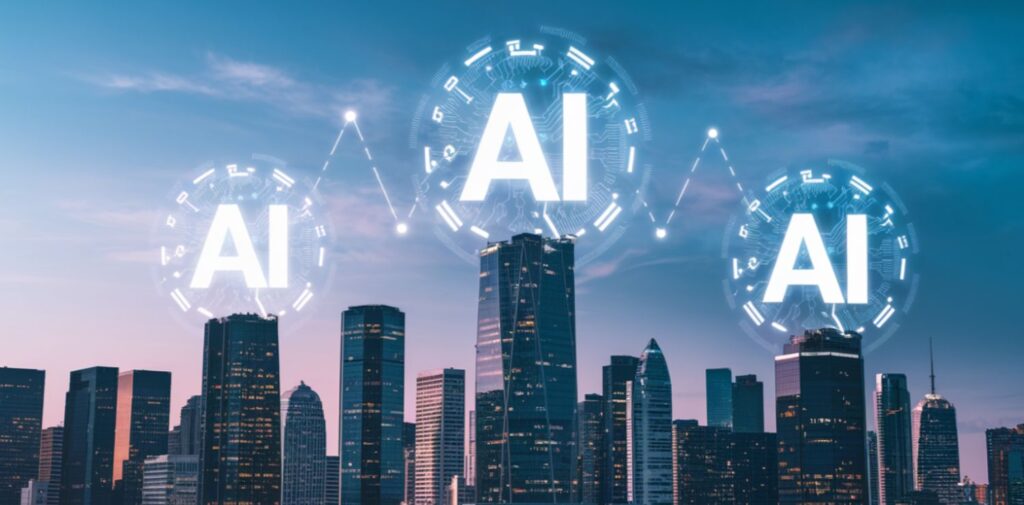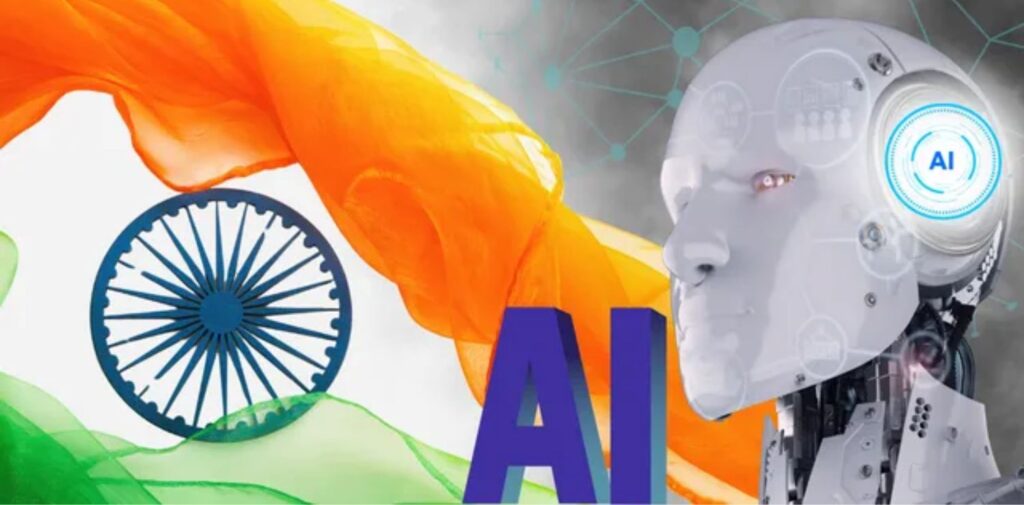Artificial Intelligence (AI) has emerged as one of the most powerful technologies of the 21st century, with the potential to transform industries, economies, and everyday life. India, with its rapidly growing tech ecosystem, is playing a key role in shaping the future of AI. From startups and research institutions to large corporations and government initiatives, India is positioning itself as a global hub for AI innovation. This article explores how India tech ecosystem is influencing the development and application of Artificial Intelligence, focusing on the country’s strengths and the opportunities ahead.
The Rise of India’s AI Startups
One of the most exciting aspects of India’s role in AI is the growth of its startup ecosystem. Over the past few years, India has seen an explosion of AI-driven startups that are tackling a wide range of problems across industries such as healthcare, finance, agriculture, education, and retail. These startups are not only developing cutting-edge AI technologies but are also creating innovative solutions tailored to India’s unique needs.
For example, companies like Niramai, a healthcare startup, are using AI to develop non-invasive breast cancer screening tools. Similarly, CropIn Technology, an agri-tech company, uses AI to help farmers increase crop yield by predicting weather patterns, pest outbreaks, and optimal planting times. These startups are proving that Artificial Intelligence can have a significant impact on critical sectors of the Indian economy, improving lives while also generating economic value.
India’s AI startup ecosystem is benefiting from a favorable environment that encourages innovation. With a young, tech-savvy population, access to global investors, and a growing number of AI-focused accelerators and incubators, these startups are thriving. Many global companies, such as Google, Microsoft, and Amazon, are also setting up AI research and development centers in India, further boosting the country’s position as a tech powerhouse.

Government Initiatives and Policy Support
The Indian government has recognized the potential of AI and has launched several initiatives to promote its development and adoption. One of the most important steps in this direction is the National AI Strategy, formulated by NITI Aayog, the government’s policy think tank. This strategy aims to leverage AI to drive economic growth, improve governance, and address social challenges in India.
Under this strategy, the government has identified five key areas where AI can have a significant impact: healthcare, agriculture, education, smart cities, and infrastructure. For instance, AI-powered tools can enhance diagnostic capabilities in healthcare, increase crop productivity in agriculture, and create smarter cities with better traffic management and waste disposal systems.
Additionally, the government is actively promoting research and development in AI through funding and grants. Various public institutions, such as the Indian Institute of Technology (IITs) and the Indian Institute of Science (IISc), are at the forefront of AI research in India. These institutes collaborate with industries to create AI solutions that are both innovative and practical.
India’s Digital India program, which focuses on improving digital infrastructure and internet access, is also indirectly boosting Artificial Intelligence adoption. By ensuring more people have access to digital tools and services, the program is laying the foundation for AI to reach every corner of the country.
Talent Pool and Skill Development
One of the key factors driving India’s AI ecosystem is its vast and diverse talent pool. India produces a large number of graduates in fields like engineering, computer science, and mathematics each year, many of whom are well-equipped to work in the AI space. The country is home to some of the world’s top engineering institutes, such as the Indian Institutes of Technology (IITs), which produce highly skilled professionals in AI and machine learning.
However, as AI continues to evolve, there is a growing need for specialized skills in areas like deep learning, neural networks, and natural language processing. Recognizing this, the Indian government, along with the private sector, has been investing heavily in AI skill development programs. Platforms like NASSCOM (National Association of Software and Service Companies) and UpGrad offer AI courses and certifications to help professionals enhance their expertise.
Moreover, large tech companies like Tata Consultancy Services (TCS), Infosys, and Wipro are also investing in training their employees to handle AI-related tasks. These companies are working on AI solutions for their clients and are also developing in-house AI tools to enhance their operations.
The emphasis on AI education and skill development is making India a key player in the global AI talent race. As AI adoption grows worldwide, India’s skilled workforce will continue to be a significant asset for both domestic and international markets.

Artificial Intelligence in Key Sectors: Transforming Industries
AI is not just an abstract concept in India; it is already transforming a variety of sectors, creating new opportunities and enhancing productivity. Let’s look at how AI is revolutionizing key industries in India:
- Healthcare: The healthcare sector in India faces significant challenges, including access to quality care, overcrowded hospitals, and the shortage of trained medical professionals. AI is helping address some of these issues. From AI-powered diagnostic tools to predictive analytics that help doctors make better decisions, Artificial Intelligence is improving healthcare delivery. Startups like HealthifyMe are using AI to provide personalized fitness and nutrition advice, while companies like Qure.ai are developing AI algorithms that assist doctors in interpreting medical images.
- Agriculture: Agriculture is a critical part of India’s economy, but farmers often face challenges like unpredictable weather, pests, and low productivity. AI is helping solve these problems by providing tools that enable better decision-making. AI-based solutions, such as crop prediction models and weather forecasting systems, are helping farmers increase yield and reduce risks. AgNext Technologies, for example, uses AI to help farmers and food businesses assess the quality of agricultural products.
- Education: AI is making education more accessible and personalized in India. Ed-tech platforms like BYJU’S and Vedantu are using AI to create personalized learning experiences for students. AI-powered chatbots and virtual tutors are helping students understand complex concepts and offering additional support outside the classroom. This is particularly important in a country like India, where access to quality education can be a challenge in rural areas.
- Finance: The finance sector in India is rapidly adopting AI for tasks such as fraud detection, customer service, and investment management. AI-powered chatbots are helping banks and financial institutions provide better customer support, while machine learning algorithms are being used to detect fraudulent activities in real-time. India’s digital payments ecosystem, which is among the largest in the world, is also being enhanced by AI to ensure secure and efficient transactions.
The Role of Collaboration and International Partnerships
India’s growth as an AI hub is not just about domestic efforts. The country has also formed several international partnerships to enhance its AI capabilities. Indian tech companies are collaborating with global players in the AI space, such as Google, Microsoft, and IBM, to develop innovative solutions. These partnerships help India tap into global expertise, while also giving Indian companies access to international markets.
Additionally, India is working with other countries to promote AI research and development. For example, India has signed agreements with the United States and the European Union to collaborate on AI projects, particularly in sectors like healthcare, cybersecurity, and smart cities.
International collaboration also helps India stay updated with the latest trends and advancements in AI. By engaging with global AI communities, India can ensure that its AI ecosystem continues to evolve and stay competitive.

Challenges and the Way Forward
While India’s AI ecosystem is growing rapidly, there are still several challenges to address. These include concerns about data privacy, the ethical use of AI, and the need for better regulatory frameworks. Additionally, there is a gap in infrastructure, particularly in rural areas, which limits the reach of AI solutions.
To overcome these challenges, India needs to focus on building robust AI policies that ensure the ethical use of AI, protect user data, and foster innovation. Strengthening the digital infrastructure and creating more awareness about AI in rural areas will also be crucial for ensuring that the benefits of AI reach all corners of the country.
Conclusion: India tech ecosystem
India tech ecosystem is playing a crucial role in shaping the future of artificial intelligence. With a thriving startup scene, strong government support, a skilled talent pool, and AI-driven solutions transforming key sectors, India is well-positioned to become a global leader in AI. As AI continues to evolve, India’s role in driving innovation, creating new opportunities, and addressing challenges will only grow. The future of AI in India is bright, and the country’s tech ecosystem is poised to play a pivotal role in the global AI revolution.




